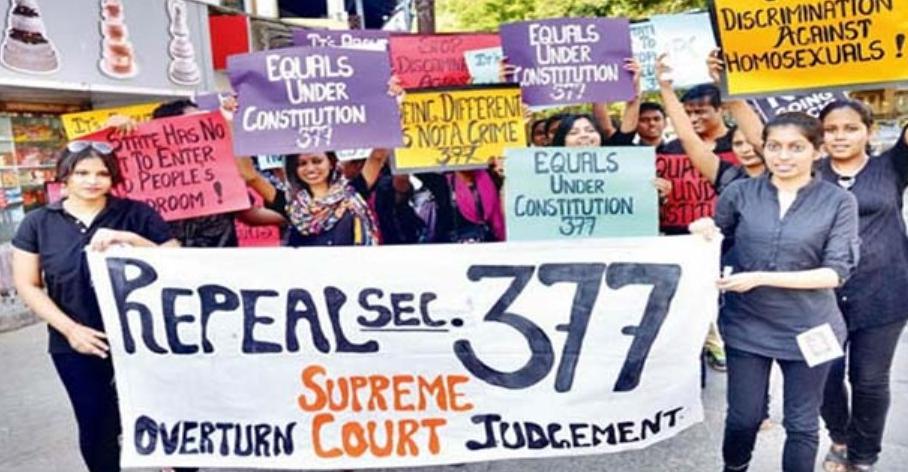Updated By: LatestGKGS Desk
IPC Section 377: Introduction, Doctrine, SC Decision on sec 377 and right to privacy

Section 377: An imprisonment for carnal intercourse and criminalizing sexuality against Nature
The section came into force in 1861 during the British rule of India (modeled on the Buggery Act of 1533) which criminalized sexual activities against the order of Nature, including homosexual activities.
Section 377 of the IPC refers to unnatural offenses and says whoever voluntarily has carnal intercourse against the order of nature with any man, woman or animal,shall be punished with imprisonment for life, or with imprisonment of either description for a term which may extend to 10 years, and shall also be liable to pay a fine.
Section 377 of the IPC refers - Whoever voluntarily has carnal intercourse against the order of nature with any man, woman or animal, shall be punished with imprisonment for life, or with imprisonment of either description for a term which may extend to 10 years, and shall also be liable to fine.
The issue of Section 377 was first raised by an NGO, Naz Foundation, and AIDS Bedhbhav Virodh Andolan, in the Delhi high court in 2001. Both the petitions were dismissed in the court.
Eight years later, the Delhi HC decriminalized sex between consenting adults of the same gender by holding the penal provision illegal.
Supreme Court's decision on Right to Privacy and section 377
The Supreme Court had upheld the Right to Privacy as a fundamental right under the Constitution On August 24, 2017. The SC also had called for equality and condemned discrimination, stating that the protection of sexual orientation lies at the core of the fundamental rights and that the rights of the LGBT (Lesbian, Gay, Bisexual, Transgender) population are real and founded on constitutional doctrine.


